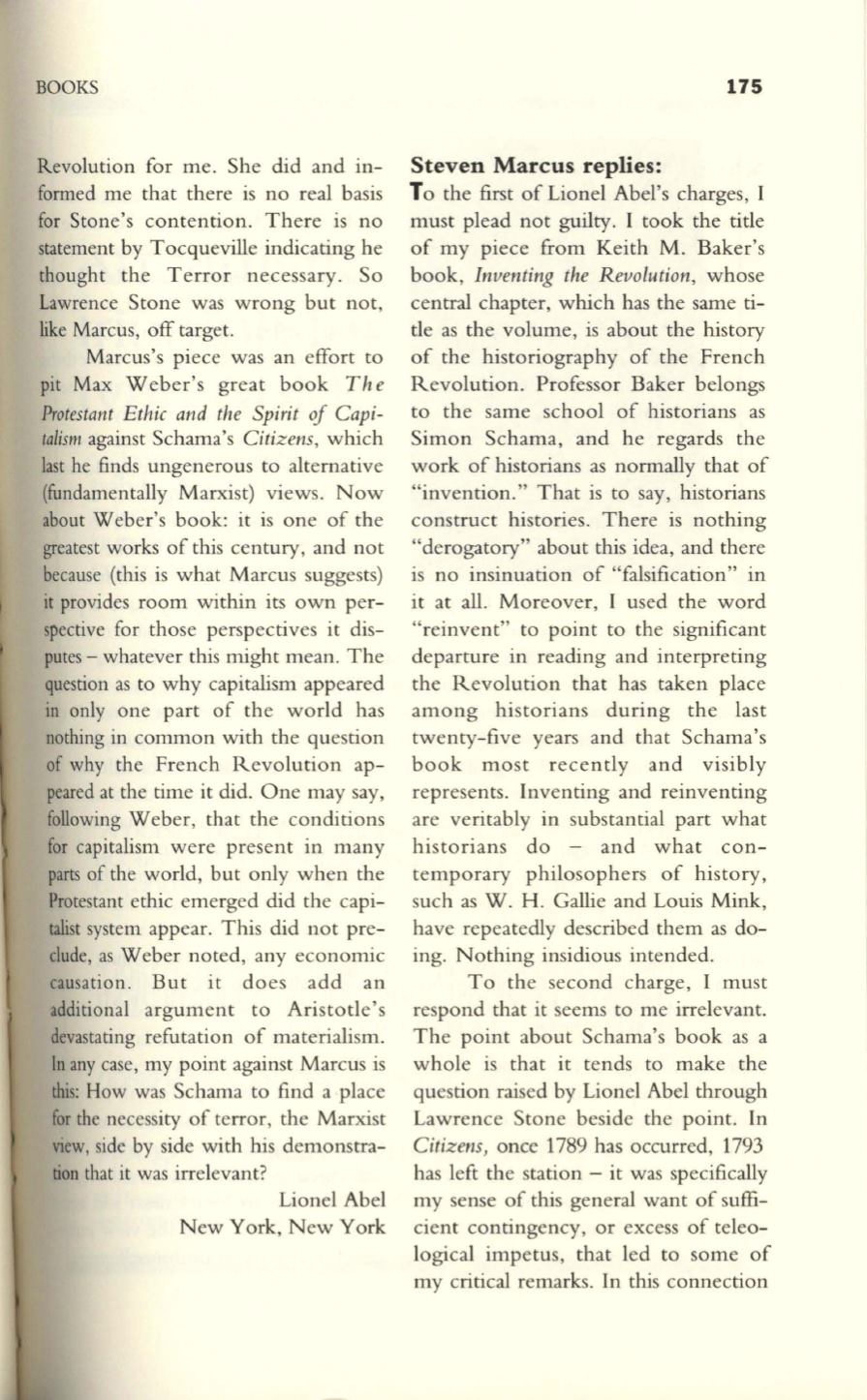
BOOKS
Revolution for me. She did and in–
formed me that there is no real basis
for Stone's contention. There is no
statement by Tocqueville indicating he
thought the Terror necessary. So
Lawrence Stone was wrong but not,
like Marcus, off target.
Marcus's piece was an effort to
pit Max Weber's great book
The
Protesta'~t
Ethic and the Spirit of Capi–
talism
against Schama's
Citizens,
which
last he finds ungenerous to alternative
(fundamentally Marxist) views. Now
about Weber's book: it is one of the
greatest works of this century, and not
because (this is what Marcus suggests)
it provides room within its own per–
spective for those perspectives it dis–
putes - whatever this might mean. The
question as to why capitalism appeared
in only one part of the world has
nothing in common with the question
of why the French Revolution ap–
peared at the time it did . One may say,
following Weber, that the conditions
for capitalism were present in many
parts of the world, but only when the
Protestant ethic emerged did the capi–
talist system appear. This did not pre–
clude, as Weber noted, any economic
causation. But it does add an
additional argument to Aristotle's
devastating refutation of materialism.
In
any case, my point against Marcus is
this: How was Schama to find a place
for the necessity of terror, the Marxist
view, side by side with his demonstra–
tion
that it was irrelevant?
Lionel Abel
New York, New York
175
Stev en Marcus replies:
To the first of Lionel Abel's charges, I
must plead not guilty. I took the title
of my piece from Keith M. Baker's
book,
Inventing the Revolution,
whose
central chapter, which has the same ti–
tle as the volume, is about the history
of the historiography of the French
Revolution. Professor Baker belongs
to the same school of historians as
Simon Schama, and he regards the
work of historians as normally that of
"invention." That is to say, historians
construct histories. There is nothing
"derogatory" about this idea, and there
is no insinuation of "falsification" in
it at all. Moreover, I used the word
"reinvent" to point to the significant
departure in reading and interpreting
the Revolution that has taken place
among historians during the last
twenty-five years and that Schama's
book most recently and visibly
represents. Inventing and reinventing
are veritably in substantial part what
historians do - and what con–
temporary philosophers of history,
such as W.
H.
Gallie and Louis Mink,
have repeatedly described them as do–
ing. Nothing insidious intended.
To the second charge, I must
respond that it seems to me irrelevant.
The point about Schama's book as a
whole is that it tends to make the
question raised by Lionel Abel through
Lawrence Stone beside the point. In
Citizens,
once 1789 has occurred, 1793
has left the station - it was specifically
my sense of this general want of suffi–
cient contingency, or excess of teleo–
logical impetus, that led to some of
my critical remarks. In this connection


